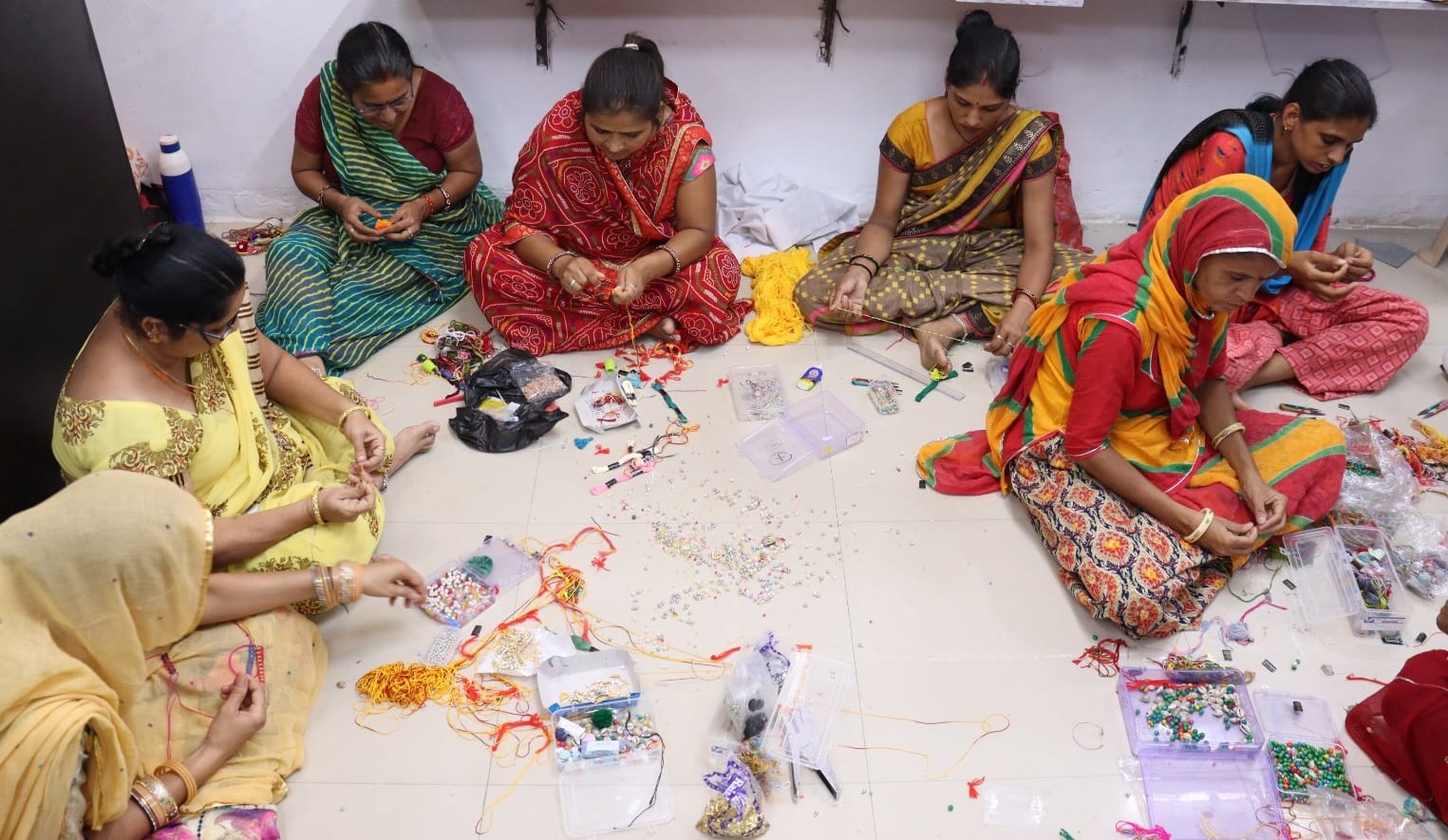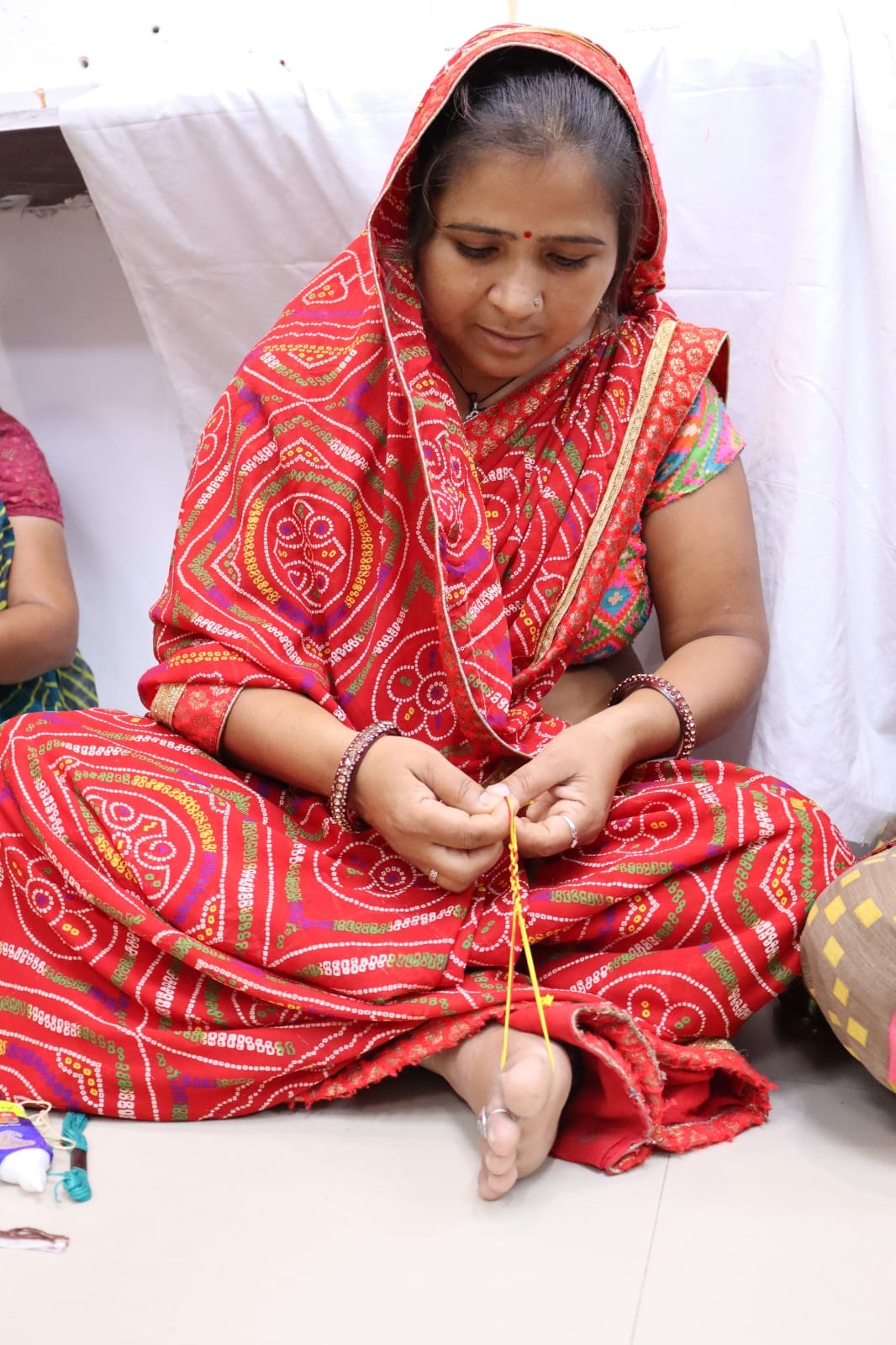
Putholi women, supported by Hindustan Zinc, create handcrafted rakhis promoting sustainability and empowerment
With the festival of Raksha Bandhan just around the corner, markets and homes across the city are bustling with preparations. Colourful rakhis have already taken over the shop displays. Amidst these, a unique and eco-friendly alternative has been introduced—handmade rakhis by rural women of Sakhi Upaya Handloom Textile Unit from Putholi village in Chittorgarh.

These rakhis are crafted using cotton, fabric, and wool by 20 rural women, including 8 Muslim women, who have been associated with the Sakhi project for years. Their creations are not just limited to Chittorgarh but are also being supplied to four other districts in Rajasthan: Udaipur, Bhilwara, Rajsamand, and Ajmer. Through these eco-friendly practices, the women are not only earning a livelihood but also promoting sustainable products.
Over 25 Designs Created by Skilled Hands
Heena Bano, one of the Sakhi artisans, shares that more than 25 rakhi designs have been developed, each symbolising a blend of culture, colour, and care. The training to craft these rakhis was provided under the Sakhi Project run by Manjari Foundation with the support of Hindustan Zinc. This initiative has given the women an opportunity to celebrate Raksha Bandhan meaningfully while becoming financially independent.
Upaya Brand Rakhis Available Online
The rakhis are carefully packed by the women themselves and sold under the Upaya brand, a product line of the Sakhi Production Committee. The rakhis are entirely eco-friendly and affordable, made without the use of plastic or machinery. These special creations will also be made available at stalls in various Hindustan Zinc units.
Sakhi Program Paving the Way for Women Entrepreneurs
Mangi Bai, associated with the Sakhi Project, recalls that before joining the initiative, most village women were engaged in farming or manual labour. Exposure to new opportunities through the project has inspired many to explore micro-entrepreneurship.
Sheetal Chauhan shares, “We never imagined that the same rakhis we used to buy from markets, we could now make ourselves and contribute to the family income. Today, women in our village are also engaged in spice and tailoring centres under the Sakhi project, aiming to strengthen their families financially.”
Started in 2017 as a modest training centre, this initiative has evolved into a thriving hub producing over 200 designs in garments and home accessories. Currently, 20 skilled women artisans work at the Putholi Unit, with more than 300 women associated across Sakhi centres in Udaipur, Rajsamand, Bhilwara, and Ajmer.
Sakhi Rakhis Tied on Chief Minister’s Wrist
Handcrafted rakhis by Sakhi women were also sent to Jaipur and tied on the wrist of Chief Minister Bhajanlal Sharma. These special rakhis were presented on behalf of the women associated with Nand Ghar—a flagship project of Anil Agarwal Foundation—and Hindustan Zinc’s Sakhi initiative.